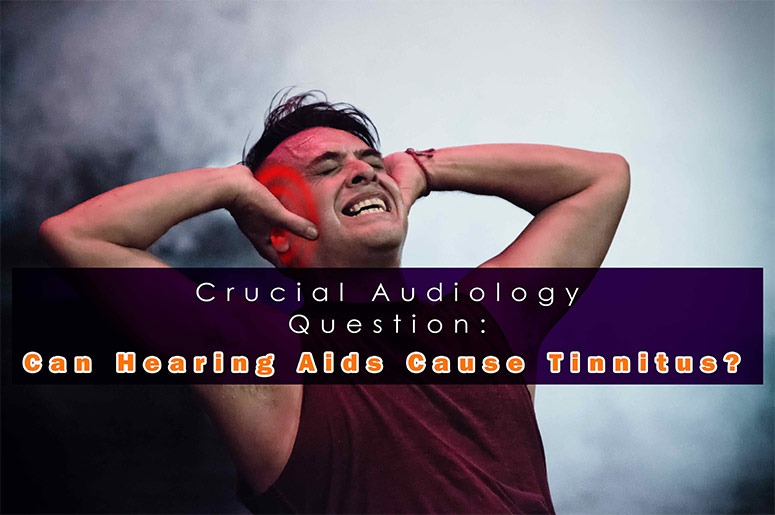Misconception Corrected: Can Hearing Aids Cause Tinnitus?
Surprisingly, many people are asking the question can hearing aids cause tinnitus? Well, before anything else let us give you the quick answer to this question. Hearing aids do not cause tinnitus in any way at all. If there are errors whilst tuning them however, then yes, they may exacerbate symptoms but all the same, they are not considered as a cause for tinnitus.
In fact, the use of such aids is one of the most effective ways of treatment. They do not totally cure by the sense of the word, but they can effectively lessen complications and effects. Any good audiologist will offer hearing aids as a primary treatment for tinnitus.
Now, since people are asking, we’ve contemplated how did they come up for such a question in the first place? How come people wonder: can hearing aids cause tinnitus? So, taking this into account, we’ve found some scenarios that may probably be the culprit in making one think hearing aids cause tinnitus.
Let’s cover the basics first.
Hearing Loss and Tinnitus Overview
Tinnitus or noises/ringing in the ears is most commonly accompanied by some degree of hearing loss. Even a mild hearing loss can lead to ringing in the ears. In fact, the level or pitch of the person’s tinnitus is normally at the same frequency as their hearing loss. For this same reason, audiologists recommend the use of hearing aids. These aids can both treat hearing loss and at the same time help mask the symptoms of tinnitus.
However, it is very important that hearing aids are properly tuned to maximise the benefits of better hearing along with an associated decline in the severity of tinnitus symptoms experienced. Additionally, it is very important for an audiologist to test the level of deafness closely after every hearing assessment. In this way, the audiologist can tune the hearing aids correctly.
3 Possible Reasons Why People are asking if Hearing Aids Cause Tinnitus
1. Amplification Reaches Maximum Auditory Tolerance
In some cases, patients become noise intolerant. It’s a condition commonly called hyperacusis. One way or another intolerance to noise basically means a smaller dynamic range for your hearing aid’s tuning. In the event of tuning issues, there is the risk of further damage to the inner ear especially the hair cells. When this happens, it will cause more inactivity and malfunction. As a result, the brain will misinterpret sounds. Alas, the ringing noise that you hear. Hence, poorly tuned hearing aids may exacerbate your tinnitus. But not in any way that hearing aids cause tinnitus.
2. Auditory System Stress
The device is not native in our body systems. Therefore, it may take a long time to adjust to the sound produced by a hearing aid. If the hearing aid is fit incorrectly it may cause a whistling or feedback which may exacerbate your tinnitus. So, we are compelled to think that hearing aids cause tinnitus. But on second thought, it’s just your own body systems reacting to an alien auditory aid.
3. Tinnitus Already Became Reactive
If treatment for tinnitus is too long, there is a chance that it can get reactive. Meaning aside from sensitivity to high pitched noise, you may become sensitive to low pitched noises too. And it does not get any better at any point. This actually relates in a way with the previous item regarding low sound tolerance, as well as overexposure to low-level sounds, and a progression of tinnitus after residual inhibition testing. For obvious reasons, reactive tinnitus does not go well with electronic amplification. And it definitely needs either an adjustment to your device or an alternative treatment as your audiologist sees fit.
If you feel you are not receiving any benefit from your hearing aids with regards to masking your tinnitus symptoms it is best to let your audiologist know immediately. They can make adjustments to your hearing aids amplification to see if you receive any improvements with your symptoms. It only takes the right test results, a good treatment plan to help make your hearing better and your overall wellness at check.
Check us out!
Your auditory wellness is our primary goal. Do not hesitate to check out the services and products that we can offer you. You can also find more helpful topics from news, publications, and editorials.
Also, are you anxious about your child’s audiology appointment? Get the assurance now by reading this article: What Should You Expect During Children Hearing Tests?

